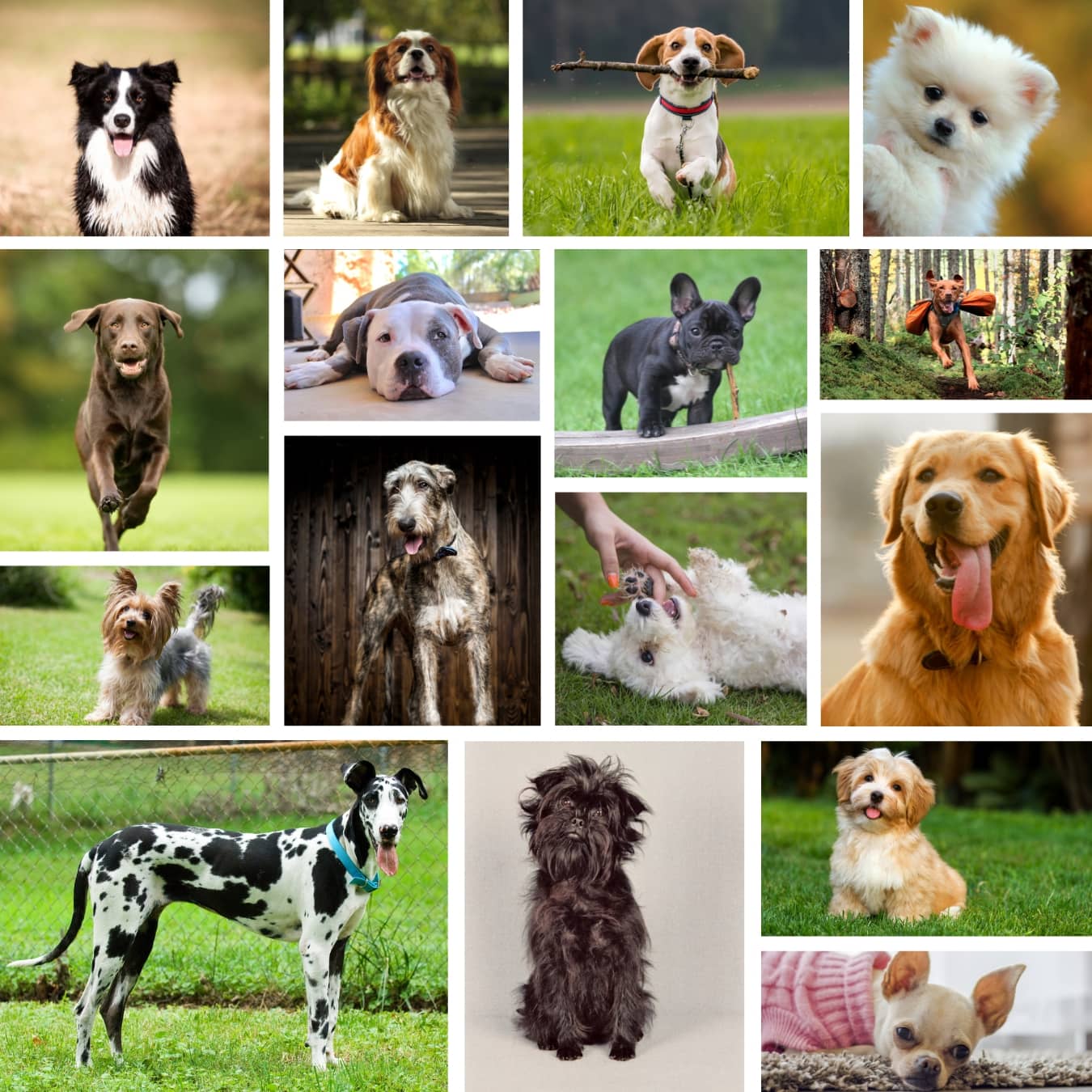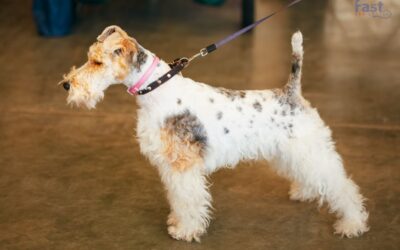20 Best Emotional Support Dogs for Mental Wellness.


What is an Emotional Support Dog?
The Top 20 Dog Breeds Known For Being The Best Emotional Support Dogs
1. Havanese – Best Emotional Support Dog Breed For Depression
Physical Characteristics
- Average Lifespan: 14-16 years
- Nature: Affectionate, cheerful, and gentle
- Height: 8.5-11.5 inches (at the shoulder)
- Weight: 7-13 pounds
Health and Care
- Health Monitoring: Eye conditions, hip dysplasia, and patellar luxation should be monitored.
- Exercise Needs: Moderate; regular walks and playtime.
- Coat Care: Regular grooming is needed to maintain their long, silky coat.
Cost of Maintenance
- Average Cost: $60 – $120 per month
2. Poodle – Best Emotional Support Dog Breed For Alzheimer’s Disease and Dementia
Physical Characteristics
- Average Lifespan: 12-15 years
- Nature: Intelligent, active, and loving
- Height: 10-18 inches (at the shoulder)
- Weight:Standard Poodle ~ 40-70 pounds, Miniature Poodle ~ 10-15 pounds, and Toy Poodle ~ 4-6 pounds
Health And Care
- Health Monitoring: Should be monitored for hip dysplasia, epilepsy, and progressive retinal atrophy.
- Exercise Needs: Moderate to high; requires regular mental and physical exercise.
- Coat Care:Regular grooming to maintain their hypoallergenic coat.
Cost Of Maintenance
- Average Cost: $70 – $150 per month
3. Pug- Best Emotional Support Dog Breed For Cheering Up
Physical Characteristics
- Average Lifespan: 12-15 years
- Nature: Friendly, loving, and playful
- Height: 10-13 inches (at the shoulder)
- Weight:14-18 pounds
Health And Care
- Health Monitoring:Should be monitored for breathing difficulties, obesity, and eye problems.
- Exercise Needs: Regular short walks are sufficient.
- Coat Care:Minimal grooming is needed for their short coat.
Cost Of Maintenance
- Average Cost: $50 – $100 per month
4. Labrador Retriever – Best Emotional Support Dog Breed For Anxiety
Physical Characteristics
- Average Lifespan: 10-12 years
- Nature: Friendly, loving, and protective
- Height: 21.5-24.5 inches (at the shoulder)
- Weight:55-80 pounds
Health And Care
- Health Monitoring: Hip dysplasia, elbow dysplasia, and obesity should be monitored.
- Exercise Needs: Daily exercise is required to manage energy levels.
- Coat Care: Regular brushing is required to maintain their double coat.
Cost Of Maintenance
- Average Cost: $60 – $140 per month
5. Yorkshire Terrier – Best Emotional Support Dog Breed For Social Anxiety
Physical Characteristics
- Average Lifespan: 11-15 years
- Nature: Affectionate, alert, and energetic
- Height: 7-8 inches (at the shoulder)
- Weight:4-7 pounds
Health And Care
- Health Monitoring: Should be monitored for dental issues, luxating patella, and tracheal collapse.
- Exercise Needs: Regular short walks and playtime.
- Coat Care: Regular grooming is required to maintain their silky coat.
Cost Of Maintenance
- Average Cost: $50 – $100 per month
6. Golden Retriever – Best Dog Breed For Emotional Support in Middle-Aged Adults
Physical Characteristics
- Average Lifespan: 10-12 years
- Nature: Friendly, gentle, and loyal
- Height:21.5-24 inches (at the shoulder)
- Weight:55-75 pounds
Health And Care
- Health Monitoring: Should be monitored for hip dysplasia, elbow dysplasia, and certain cancers.
- Exercise Needs: Regular exercise is required to maintain health.
- Coat Care: Regular grooming is required to maintain their thick double coat.
Cost Of Maintenance
- Average Cost: $70 – $150 per month

7. Cavalier King Charles Spaniel – Best Mixed Dog Breed For An Emotional Support Animal
Physical Characteristics
- Average Lifespan: 12-15 years
- Nature: Affectionate, gentle, and friendly
- Height:12-13 inches (at the shoulder)
- Weight:13-18 pounds
Health And Care
- Health Monitoring: Heart conditions, syringomyelia, and hip dysplasia should be monitored.
- Exercise Needs: Regular walks and playtime are sufficient.
- Coat Care: Regular grooming is required to maintain their silky coat.
Cost Of Maintenance
- Average Cost: $60 – $120 per month
8. Irish Wolfhound – Best Large Dog Breed For Emotional Support Animal
Physical Characteristics
- Average Lifespan: 6-8 years
- Nature: Gentle, affectionate, and calm
- Height: 30-32 inches (at the shoulder)
- Weight: 105-180 pounds
Health And Care
- Health Monitoring: Should be monitored for heart issues, bloat, and hip dysplasia.
- Exercise Needs: Moderate; regular walks and playtime.
- Coat Care: Regular brushing is required to maintain their wiry coat.
Cost Of Maintenance
- Average Cost: $80 – $200 per month
9. Chihuahua – Best Small Dogs For Emotional Support
Physical Characteristics
- Average Lifespan: 12-20 years
- Nature: Affectionate, loyal, and alert
- Height: 5-8 inches (at the shoulder)
- Weight: 2-6 pounds
Health And Care
- Health Monitoring: Should be monitored for dental issues, heart problems, and patellar luxation.
- Exercise Needs: Low; regular short walks and playtime.
- Coat Care: Minimal grooming is needed for their short or long coat.
Cost Of Maintenance
- Average Cost: $40 – $80 per month
10. Pomeranian- Best Emotional Support Dog For Apartment
Physical Characteristics
- Average Lifespan: 12-16 years
- Nature: Affectionate, playful, and alert
- Height: 7.9-9.1 inches (at the shoulder)
- Weight: 3-7 pounds
Health And Care
- Health Monitoring: Should be monitored for dental issues, heart problems, and luxating patella.
- Exercise Needs: Moderate; regular short walks and playtime.
- Coat Care: Regular grooming to maintain their fluffy coat.
Cost Of Maintenance
- Average Cost: $50 – $100 per month
11. Corgi – Best Emotional Support Dogs For ADHD
Physical Characteristics
- Average Lifespan: 12-15 years
- Nature: Energetic, intelligent, and affectionate
- Height: 10-12 inches (at the shoulder)
- Weight: 25-30 pounds
Health And Care
- Health Monitoring: Hip dysplasia, elbow dysplasia, and obesity should be monitored.
- Exercise Needs: Regular exercise is required to maintain health.
- Coat Care: Regular brushing is required to maintain their double coat.
Cost Of Maintenance
- Average Cost: $60 – $130 per month
12. Saint Bernard- Best Emotional Support Dog For Autism
Physical Characteristics
- Average Lifespan: 8-10 years
- Nature: Gentle, affectionate, and patient
- Height: 26-30 inches (at the shoulder)
- Weight: 120-180 pounds
Health And Care
- Health Monitoring: Should be monitored for heart issues, hip dysplasia, and bloat.
- Exercise Needs: Moderate; regular walks and playtime.
- Coat Care: Regular grooming is required to maintain their thick coat.
Cost Of Maintenance
- Average Cost: $80 – $200 per month
13. Collie – Best Emotional Support Dog For Bipolar Disorder
Physical Characteristics
- Average Lifespan: 12-14 years
- Nature: Friendly, loving, and protective
- Height: 22-26 inches (at the shoulder)
- Weight: 50-70 pounds
Health And Care
- Health Monitoring: For hip dysplasia, eye problems, and skin allergies should be monitored.
- Exercise Needs: Daily walks and playtime are sufficient.
- Coat Care: Regular brushing to maintain their beautiful coat.
Cost Of Maintenance
- Average Cost: $60 – $130 per month
14. Great Danes- Best Emotional Support Dogs For PTSD
Physical Characteristics
- Average Lifespan: 7-10 years
- Nature: Loyal, calm, and affectionate
- Height: 28-34 inches (at the shoulder)
- Weight: 110-175 pounds
Health And Care
- Health Monitoring: Should be monitored for heart issues, bloat, and hip dysplasia.
- Exercise Needs: Moderate; regular walks and playtime.
- Coat Care: Minimal grooming is needed for their short coat.
Cost Of Maintenance
- Average Cost: $80 – $200 per month
15. Airedale Terrier- Best Medium-Sized Emotional Support Dogs
Physical Characteristics
- Average Lifespan: 10-13 years
- Nature: Intelligent, loyal, and playful
- Height: 21-23 inches (at the shoulder)
- Weight: 40-65 pounds
Health And Care
- Health Monitoring: Healthy but should be monitored for common breed-specific issues such as hip dysplasia and allergies.
- Exercise Needs: Moderate Exercise Needs.
- Coat Care: Their wiry coat needs regular grooming to prevent matting.
Cost Of Maintenance
- Average Cost: $50- $125
16. Dachshunds- Best Emotional Support Dogs For Cancer Patients
Physical Characteristics
- Average Lifespan: 12-16 years
- Nature: Affectionate, lively, and courageous
- Height: 8-9 inches (at the shoulder)
- Weight: 16-32 pounds (standard size), 11 pounds or under (miniature size)
Health And Care
- Health Monitoring: Due to their long spines, they should be watched for back problems, obesity, and dental issues.
- Exercise Needs: Moderate.
- Coat Care: Comes in smooth, longhaired, and wirehaired varieties, each requiring different grooming levels.
Cost Of Maintenance
- Average Cost: $40 – $100 per month
17. Bichon Frise – Best Emotional Support Dog For The Elderly (People Older Than 70)
Physical Characteristics
- Average Lifespan: 12-15 years
- Nature: Cheerful, affectionate, and playful
- Height: 9.5-11.5 inches (at the shoulder)
- Weight: 12-18 pounds
Health And Care
- Health Monitoring: Generally healthy but should be monitored for breed-specific issues such as allergies, dental problems, and patellar luxation.
- Exercise Needs: Low to moderate; daily walks and playtime are sufficient.
- Coat Care: Hypoallergenic and requires regular grooming to keep their coat clean and mat-free.
Cost Of Maintenance
- Average Cost: $50 – $100 per month
18. Border Collies – Best Emotional Support Dog For Migraines
Physical Characteristics
- Average Lifespan: 12-15 years
- Nature: Intelligent, sensitive, and energetic
- Height: 18-22 inches (at the shoulder)
- Weight: 30-55 pounds
Health And Care
- Health Monitoring: Generally healthy but should be watched for hip dysplasia, epilepsy, and progressive retinal atrophy.
- Exercise Needs: They require daily physical and mental stimulation.
- Coat Care: Regular brushing to maintain their double coat.
Cost Of Maintenance
- Average Cost: $50 – $120 per month
19. Bernese Mountain Dog – Best Emotional Support Dog For OCD
Physical Characteristics
- Average Lifespan: 7-10 years
- Nature: Gentle, patient, and affectionate
- Height: 23-28 inches (at the shoulder)
- Weight: 70-115 pounds
Health And Care
- Health Monitoring: Prone to hip dysplasia, elbow dysplasia, and bloat.
- Exercise Needs: Moderate; daily walks and playtime are needed.
- Coat Care: Regular grooming is required to maintain their thick, double coat.
Cost Of Maintenance
- Average Cost: $85 – $200 per month
20. Boxer – Best Emotional Support Dog For Panic Attacks
Physical Characteristics
- Average Lifespan: 10-12 years
- Nature: Energetic, affectionate, and loyal
- Height: 21-25 inches (at the shoulder)
- Weight: 50-80 pounds
Health And Care
- Health Monitoring: Should be monitored for heart conditions, hip dysplasia, and certain cancers.
- Exercise Needs: High; requires daily exercise to manage energy levels.
- Coat Care: Minimal grooming is needed for their short coat.
Cost Of Maintenance
- Average Cost: $70 – $150 per month
How To Select The Right Breed For Your Emotional Support Needs
It’s important to remember that when you decide to welcome a new dog into your life, you’ll be getting a new family member. For this reason, it’s important to choose the right dog breed that matches your lifestyle and emotional needs.
Here are some factors to consider:
- Temperament and personality: Each breed has different personality traits, so try to find one that matches your needs. For example, some dogs are known for their calm and gentle nature, while others are energetic and playful. Breeds like the Golden Retriever and Cavalier King Charles Spaniel are known for their gentle and affectionate nature.
- Exercise Needs: Different breeds have varying levels of exercise needs. Make sure to choose a breed that matches your activity level. For example, Labrador Retrievers and Border Collies require plenty of exercise and are perfect for active individuals.
- Size: Consider the size of your living space and how much room you have for a dog. Larger breeds need more space to move around, while smaller breeds are more adaptable to apartment living. Small Breeds such as Chihuahuas and Pomeranians are ideal for smaller living spaces. Large Breeds, such as Irish Wolfhounds and Great Danes, require more space and are better suited for larger homes.
- Grooming requirements: Some breeds require more grooming and maintenance than others. Consider how much time you can dedicate to grooming your dog. For example, Boxers and great-danes have short coats that require minimal grooming, whereas Poodles and Collies have coats that require regular grooming and care.
- Health Considerations: Some breeds are prone to certain health issues. It’s important to be aware of these and choose a breed whose health needs you can manage. Be prepared to monitor and manage potential health issues like hip dysplasia, heart conditions, and allergies specific to certain breeds.
Do Emotional Support Dogs Need Special Training?
ESAs do not require specialized training like psychiatric service dogs. However, basic obedience training is recommended to ensure they are well-behaved and manageable in various settings. This training helps the ESA to:
- Respond to Commands: Teaching basic commands such as sit, stay, and come can make the dog more predictable and easier to control.
- Adapt to Public Spaces: Well-behaved ESAs are less likely to cause disruptions in public areas, making things less stressful for the owner.
- Improve Bonding: Training sessions can strengthen the bond between the dog and its owner, enhancing the emotional support the dog provides.
- Ensure Safety: Obedience training can prevent potentially dangerous behaviors like jumping on strangers.
Is There An Age Requirement For A Dog Breed To Become An Emotional Support Animal?
Are There Weight Restrictions For Emotional Support Dogs?
Are There Any Breed Restrictions For Emotional Support Dogs?
Can I Have More Than One Emotional Support Dog?
You can have more than one emotional support dog after getting a recommendation from a mental health professional. Moreover, the landlord cannot charge extra pet rent or deposits for multiple ESA accommodations.
However, the accommodation for multiple ESAs should be reasonable.
For example, if one of your pets helps you with panic attacks and anxiety and another pet assists you to stay active, both emotional support animals are deemed necessary for your mental health.
What Are The Best Emotional Support Dog Breeds For Kids?
Many dog breeds are good for kids. They are known for their friendly and affectionate natures, making them excellent choices for families with children. Some of these are
- Golden Retrievers
- Labrador Retrievers
- Pug
- Standard Poodles
- Cavalier King Charles Spaniels
These breeds are generally patient, gentle, and good-natured, ensuring a harmonious relationship with kids of all ages and personalities. However, the bond between the dog and the child will also depend on the specific temperament of the individual dog and the child’s behavior towards animals.
Bottom Line:
Frequently Asked Questions
Which Small Dogs Make The Best Emotional Support Animals?
Which Dog Breeds Are Hypoallergenic For Emotional Support?
Do Mixed Breeds Make Good Emotional Support Dogs?
Are Yorkies Good For Travel As Emotional Support Animals?
What’s The Best Dog For Someone Who Lives In A Small Apartment?
Which Dog Breeds Are Good For Elderly People Needing Emotional Support?
What Breed Is Best For People Who Work Long Hours But Need Emotional Support?
What Kind Of Dog Is Best For Emotional Support?
What Is The Most Emotionally Intelligent Dog?
Can Emotional Support Dogs Be Trained To Respond To Panic Attacks?
What Breed Is Best For Someone With Chronic Fatigue Syndrome?
What Are The Best Dog Breeds For Travel?
Can Emotional Support Dogs Help With Agoraphobia?
Post Author
Prince Sharma
Related Articles
Can a Turtle Be an Emotional Support Animal?
Can a Turtle Be an Emotional Support Animal? Yes—Here’s How!Yes, a turtle can be an emotional support animal (ESA) if it provides comfort and emotional stability to its owner. While turtles may not offer the same level of interaction as dogs or cats,...
Is a Fox Terrier the Right Emotional Support Dog for You?
Is a Fox Terrier the Right Emotional Support Dog for You?Fox Terriers can be your perfect emotional support animal, offering unmatched comfort and companionship if you're dealing with emotional or mental health challenges. To officially make your Fox...
Can Your Tenant Own an Alligator as an Emotional Support Animal?
Can Your Tenant Own an Alligator as an Emotional Support Animal?Yes, an alligator can become an emotional support animal (ESA) if a licensed professional provides an ESA letter. However, due to safety concerns, many landlords and states may restrict...
Live Free with Your ESA!
An ESA Letter Unlocks Freedom!






